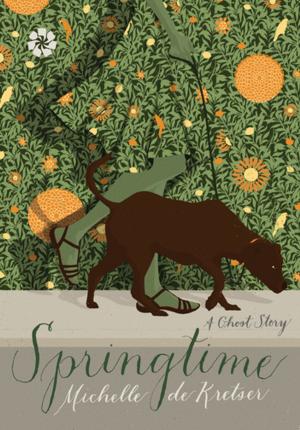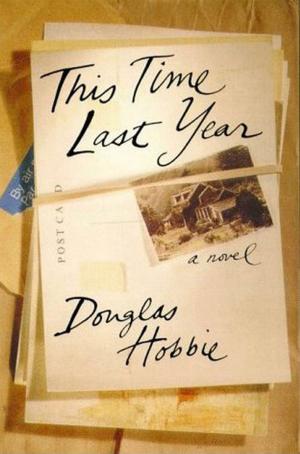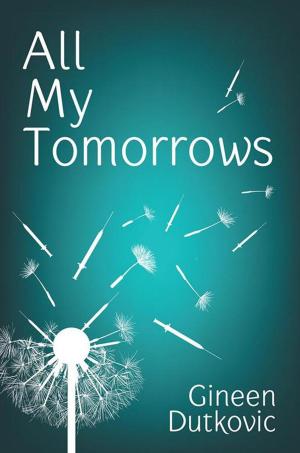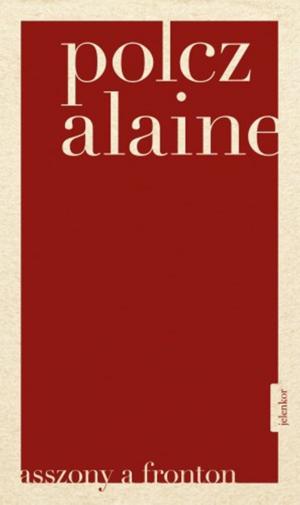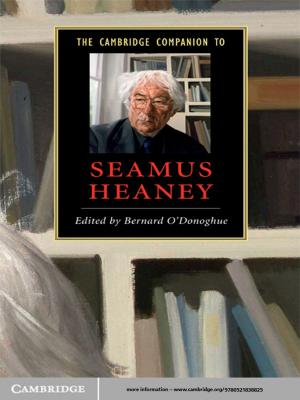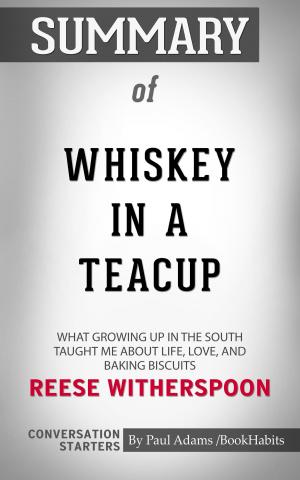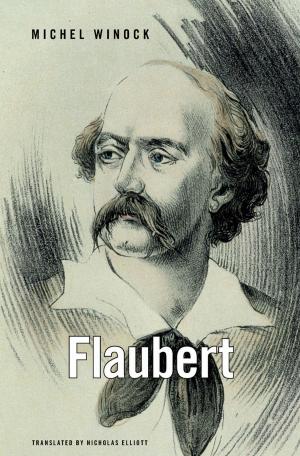| Author: | Susan E. Briggs | ISBN: | 9781617504440 |
| Publisher: | Susan E. Briggs | Publication: | November 15, 2010 |
| Imprint: | Susan E. Briggs | Language: | English |
| Author: | Susan E. Briggs |
| ISBN: | 9781617504440 |
| Publisher: | Susan E. Briggs |
| Publication: | November 15, 2010 |
| Imprint: | Susan E. Briggs |
| Language: | English |
SYNOPSIS: It is the summer of 1997 and the comet Hale-Bopp is on its way. Soon it will pass over the Ohio farm where Henry Hobson lives with his wife, Elizabeth, daughter, Sara, and their three farm hands: the lovesick Jason, the nomadic Matthew, and the introspective Noah, who is obsessed with tracking the comet’s progress across the nighttime sky. But coinciding with the comet’s approach is the arrival of Delilah, a wanderer with a troubled past, driven to find her estranged son. And as this disturbing presence collides with the Hobson Family, their personal histories, as well as their relationship to a larger universe and a tradition of human experience are revealed. Part love story, part road trip, and part dream, I Can See Heaven leads the reader into a world ruled by desire, obsession, and the ever-constant search for home. // REVIEWS: “I Can See Heaven is like the mirror image of the shadow behind the ordinary, where the macabre and the banal meet somewhere between Nathaniel Hawthorne and the Old Testament, between the Old Testament and The Wizard of Oz. It's marvel and baroque on the plains of Ohio, where each character, under the stress of the day to day, hides a ruthless, Manichean soul where the lines between love and abuse, domination and protection are obscured; memory and dream, mystery and evocation weave and weave and weave among lines of common occurrence and fate, belief in the absurd and the denial of the obvious, a tapestry of fabulous realities and common unrealities, with great characters in a great story in the American heartland. This is a fabulous debut novel.” — Chuck Rosenthal, author of The Heart of Mars // “In the tradition of Sherwood Anderson and Willa Cather, Susan Briggs' I Can See Heaven is a shot at the heart of that ‘organ from which she cannot lie.’ An interesting and strong first novel.” — Paul Vangelisti, author of Days Shadows Pass // “Chemistry is weird, everything works fine until a strange new element is added. I Can See Heaven tells the story of a simple farm, its families, and its farm hands. When Delilah comes to their farm looking for her son, the Hobson's family life just may change forever. As a comet draws closer, their story seems to come to a boiling point the closer the comet comes to streaking across Earth's sky. I Can See Heaven is a fine read that many will relate to and be moved by.” — Midwest Book Review // ""[In I Can See Heaven,] every character's past affects their present circumstance. This reveals the incredible fragility of human relationships to each other and to the world. Briggs delicately creates a beautiful yet painful world of lives constantly seeking purpose and a place to call home. There is no greater miracle for these characters than to have one unalterable harmonious place. They find that on the Hobson farm and with each other. ... Briggs raises the human spirit to the sky with a touch, a glance ... and a glimmer of hope. Throughout her novel, laughter and tears have their place in humanity, but hopelessness is absent."" — Curled Up With a Good Book // “The cover does a perfect job of capturing the dreaminess of the story, while, at the same time, establishing that it unfolds in a specific place. [Briggs has] assembled a fascinating cast of characters, each one striving for something – love, desire, escape. [She has] also given them incredible back stories: Delilah’s in particular is horrifying and dramatic. Her arrival at the farm is a wonderful inciting incident. I particularly liked the way each character responded so differently to her presence – Henry jolted by something inside her, Sara concerned, Elizabeth oblivious. The novel is filled with beautiful images, such as [Briggs’] careful description of the passion Henry has for blackberries … [and] the dialogue is used well to describe character.” — Writer's Digest Commentary
SYNOPSIS: It is the summer of 1997 and the comet Hale-Bopp is on its way. Soon it will pass over the Ohio farm where Henry Hobson lives with his wife, Elizabeth, daughter, Sara, and their three farm hands: the lovesick Jason, the nomadic Matthew, and the introspective Noah, who is obsessed with tracking the comet’s progress across the nighttime sky. But coinciding with the comet’s approach is the arrival of Delilah, a wanderer with a troubled past, driven to find her estranged son. And as this disturbing presence collides with the Hobson Family, their personal histories, as well as their relationship to a larger universe and a tradition of human experience are revealed. Part love story, part road trip, and part dream, I Can See Heaven leads the reader into a world ruled by desire, obsession, and the ever-constant search for home. // REVIEWS: “I Can See Heaven is like the mirror image of the shadow behind the ordinary, where the macabre and the banal meet somewhere between Nathaniel Hawthorne and the Old Testament, between the Old Testament and The Wizard of Oz. It's marvel and baroque on the plains of Ohio, where each character, under the stress of the day to day, hides a ruthless, Manichean soul where the lines between love and abuse, domination and protection are obscured; memory and dream, mystery and evocation weave and weave and weave among lines of common occurrence and fate, belief in the absurd and the denial of the obvious, a tapestry of fabulous realities and common unrealities, with great characters in a great story in the American heartland. This is a fabulous debut novel.” — Chuck Rosenthal, author of The Heart of Mars // “In the tradition of Sherwood Anderson and Willa Cather, Susan Briggs' I Can See Heaven is a shot at the heart of that ‘organ from which she cannot lie.’ An interesting and strong first novel.” — Paul Vangelisti, author of Days Shadows Pass // “Chemistry is weird, everything works fine until a strange new element is added. I Can See Heaven tells the story of a simple farm, its families, and its farm hands. When Delilah comes to their farm looking for her son, the Hobson's family life just may change forever. As a comet draws closer, their story seems to come to a boiling point the closer the comet comes to streaking across Earth's sky. I Can See Heaven is a fine read that many will relate to and be moved by.” — Midwest Book Review // ""[In I Can See Heaven,] every character's past affects their present circumstance. This reveals the incredible fragility of human relationships to each other and to the world. Briggs delicately creates a beautiful yet painful world of lives constantly seeking purpose and a place to call home. There is no greater miracle for these characters than to have one unalterable harmonious place. They find that on the Hobson farm and with each other. ... Briggs raises the human spirit to the sky with a touch, a glance ... and a glimmer of hope. Throughout her novel, laughter and tears have their place in humanity, but hopelessness is absent."" — Curled Up With a Good Book // “The cover does a perfect job of capturing the dreaminess of the story, while, at the same time, establishing that it unfolds in a specific place. [Briggs has] assembled a fascinating cast of characters, each one striving for something – love, desire, escape. [She has] also given them incredible back stories: Delilah’s in particular is horrifying and dramatic. Her arrival at the farm is a wonderful inciting incident. I particularly liked the way each character responded so differently to her presence – Henry jolted by something inside her, Sara concerned, Elizabeth oblivious. The novel is filled with beautiful images, such as [Briggs’] careful description of the passion Henry has for blackberries … [and] the dialogue is used well to describe character.” — Writer's Digest Commentary


